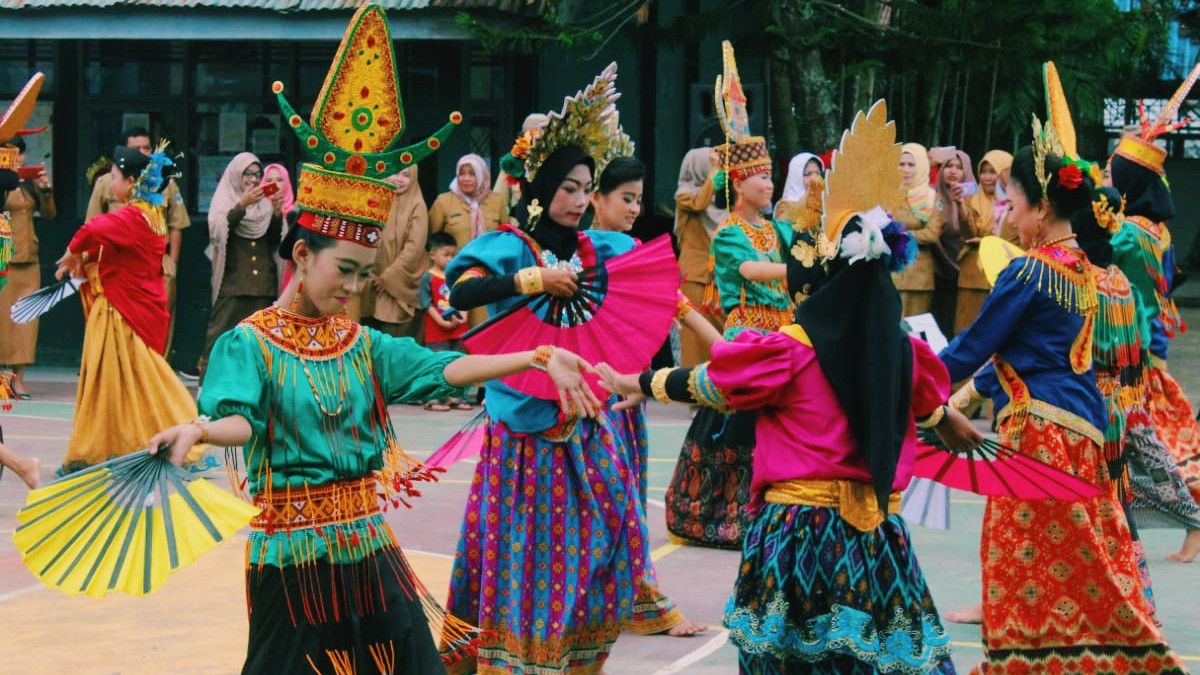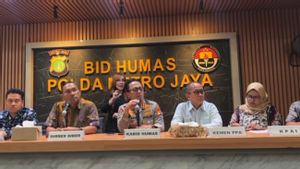JAKARTA - The role of women in life in the world is so big. He can do anything. Anthropologist Marvin Harris once revealed that women, physically and spiritually, are able to carry out all the basic tasks of production and survival independently, even without the help of men.
“Women can do every job that men can do, although it is less efficient if manual labor is required. Women are able to hunt with arrows and bows, look for fish, set traps, and cut down trees if taught or allowed to learn, "Harris said in the book Cows, Pigs, War, and Witchcraft (2019).
One reflection of this perspective is firmly held by the Bugis. Because of the value of women, in a marriage life cycle ceremony, a man must give a dowry known as "panai money" or panaik, as an absolute condition for getting married.
The panai money 'that was spent was countless. Quoted from Renisah Nur's article in Mutu Manikam (2018), the amount of panai money given to the family of the bride depends on the position and education of the prospective wife. "The higher the education or the descendants of the prospective wife (for example from a noble or distinguished family), the higher the panai 'money is given. The amount of panai money 'is also determined by the family of the bride. "
Not surprisingly, through panai money, the seriousness of the prospective groom to get the woman he loves can be seen. This is also proof that the Bugis people really value the existence of women as God's very valuable creatures.
Great value in panai money 'We contacted a cultural observer of South Sulawesi, Feby Triadi to get an overview of this tradition. Feby explained that panai money 'which is often pronounced in the Bugis language as Doi menre' has been going on for a long time in the Bugis community.
This tradition is preserved because it has noble values. About mutual care and hard work, especially. "Usually, panai money 'which is a gift from men for party expenses and provisions for life for women."
Even so, in the present era, said Feby, this value has changed slightly, adjusting to the demands of the times. The times have changed, the increase in the amount of panai money has changed accordingly. This change is proof that human's noble creations are able to respond to changes and developments.
The process of proposing a Bugis girlIn a series of Bugis application processions, Feby explained that panai 'money was in the second stage. Above panai money there is the Mappese-pese stage, which is the momentum for a young man to have an appreciation for women.
In that stage, a man will dare to propose to his idol. "If the woman's family agrees, then the man will appoint a family representative to visit and discuss the next stage."
“Second, madduta or massuro, a meeting usually held by representatives of male families to women's families. Inside there is the throwing of people's rhymes between representatives of the Bugis pabbicara (negotiators) to determine the nominal amount of panai money to be given. "
As the third stage, the Mappenre doi will be carried out, which is when the male family brings the agreed-upon panai money. At this moment, the group from the male family directly visited the woman's family.
The fourth stage that Mappettu has is determining the good day and the type of reception party that will be played. Finally, the ongoing Kabul marriage or consent.
Full of criticismIn line with the sustainability of panai money, the flow of criticism about this tradition is also heavy. Some people think that the money asked by the woman's family is often difficult because it is beyond one's means.
In fact, criticism is also present through a feature film by Halim Gani Safia entitled Uang Panai '(2016). In one scene, it tells the story of a male family member who just returned home negotiating panai money. At that time the male family had objected to the amount of panai 'money being asked for.
The father then said, “That's how it is today. We ourselves make trouble for ourselves. In the past, the name panai money 'was a form of appreciation to the prospective bride. Well, now the numbers should be mentioned. "
The mother also did not remain silent. "That is it, sir. Every year the panaik money continues to increase. Marriage is getting more expensive. I think this is a prestigious event. "
While sipping coffee, his father added again. "Actually, in Islam, what is obligatory is dowry. And the dowry is not panai money '"
Another criticism expressed by Susan Bolyard Millar in the book Marriage Bugis (2009). He views the panai money tradition as a sign of extravagant and showy status.
"Within a year, a married couple who are reaching their prime will be ready to marry off their most promising son, who is quite suitable to be paired with a woman of higher status with a higher amount of spending money."
However, Feby explained another point of view. Panai money 'can be seen as an attempt by a woman's family to protect - if you do not want to be called interfering - the prospective bride from a choice that does not comply with the family's standard.
When a woman's family starts to target a high amount of panai 'beyond their means, it is usually a subtle form of resistance. "Because if the family approves each other, regardless of the amount of panai money, then of course it will not be a big problem," he concluded.
The English, Chinese, Japanese, Arabic, and French versions are automatically generated by the AI. So there may still be inaccuracies in translating, please always see Indonesian as our main language. (system supported by DigitalSiber.id)










